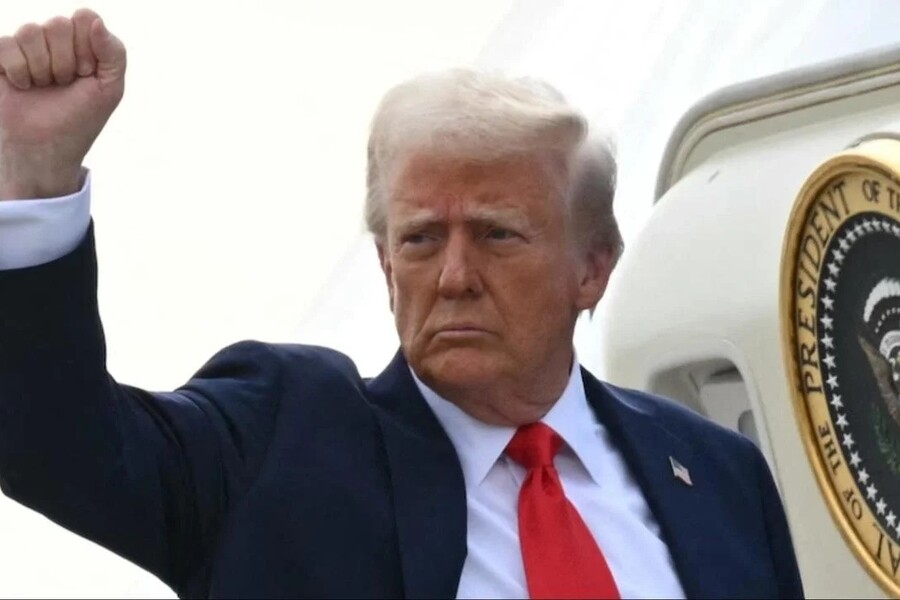President Donald Trump’s administration has implemented sweeping immigration policies, not only targeting undocumented individuals but also imposing significant restrictions on legal immigration channels, including programs for refugees and humanitarian parole initiatives. These measures, which have already drawn criticism from advocates and policymakers, mark a sharp departure from previous administrations’ approaches to legal immigration.
Within hours of taking office, Trump issued an executive order pausing the U.S. refugee admissions program indefinitely. This move effectively halted the entry of over 22,000 refugees who had already been approved after undergoing years of rigorous vetting processes, including interviews, security screenings, and medical evaluations. Refugee resettlement agencies have also been instructed to cease using federal funds, limiting their ability to provide critical services to those already in the U.S.
Under the new directives, refugee admissions will only resume if deemed to align with U.S. interests. Trump argued that refugees place undue strain on American communities, a claim that has been sharply contested by advocates who view the program as a bipartisan cornerstone of legal immigration policy.
Trump’s crackdown extends beyond refugee admissions to include humanitarian parole programs. These programs, previously utilized to grant temporary legal entry on public interest or humanitarian grounds, have been effectively dismantled. The administration has ordered a halt to initiatives such as Uniting for Ukraine, which allowed 240,000 Ukrainians fleeing war to seek refuge in the U.S. Similar programs for Afghans, Cubans, Haitians, Nicaraguans, and Venezuelans have also been suspended, potentially jeopardizing the legal status of tens of thousands of individuals.
A particularly controversial move has been the shutdown of CBP One, a mobile app that enabled migrants in Mexico to request appointments to enter the U.S. legally. Under the Biden administration, this app facilitated the legal entry of 1,500 migrants daily at official border crossings. Trump’s decision to terminate the app has left many migrants in limbo, prompting concerns about increased illegal crossings.
The administration has also authorized Immigration and Customs Enforcement (ICE) to revoke the parole status of migrants admitted under Biden-era policies and initiate deportations. This directive could impact over 1.5 million individuals, including migrants from Cuba, Haiti, Nicaragua, and Venezuela, as well as those admitted through CBP One.
In addition, Trump officials have closed Safe Mobility Offices in Latin America, which were established to vet migrants for legal immigration pathways and resettlement programs in the U.S., Spain, and Canada. This decision has further narrowed options for those seeking refuge through lawful channels.
The administration’s efforts to restrict legal immigration also include a push to end birthright citizenship, a move currently stalled in the courts. If implemented, it would deny U.S. citizenship to children born to immigrants with temporary visas or those in the country illegally.
Advocates for refugees and legal immigration have expressed alarm over these policies. Krish O’Mara Vignarajah, president of Global Refuge, called the suspension of refugee flights a betrayal of U.S. commitments to vulnerable populations. “Canceling flights for already approved refugees who have waited years as they’ve gone through extreme vetting betrays promises we made,” she said, describing the refugee process as the “gold standard” in legal immigration.
Supporters of Trump’s measures, however, argue that the administration is addressing abuses of immigration authority. Mark Krikorian, executive director of the Center for Immigration Studies, claimed that Biden-era policies, such as expansive use of parole, created a “parallel immigration system outside the law” that needed to be curtailed.
While Trump’s actions have been praised by those advocating for stricter immigration controls, they have also drawn widespread criticism for their impact on vulnerable populations. By targeting both undocumented and legally vetted individuals, the administration has sparked a contentious debate over the future of immigration in the United States.
As these measures continue to unfold, they are likely to face legal challenges and intensify political divisions, leaving the future of U.S. immigration policy uncertain.
